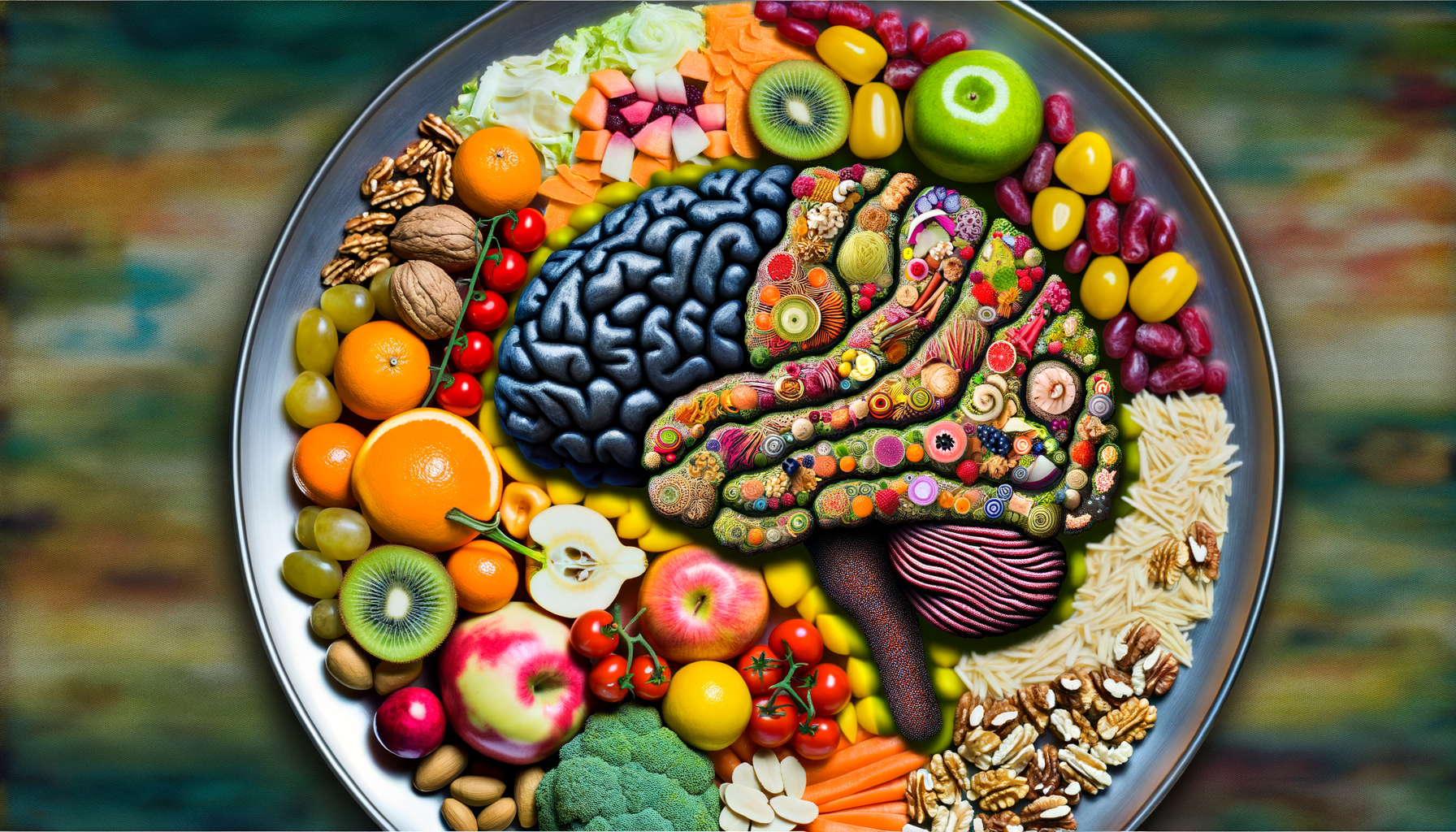Understanding the Gut-Brain Connection: How Calorie Intake Affects Mental Health
The intricate relationship between what we eat and our mental well-being has become a focal point in the fields of nutrition, psychology, and psychiatry. The gut-brain axis, a bidirectional communication network between the gastrointestinal system and the brain, plays a crucial role in this dynamic. Here, we delve into how calorie intake, specifically through dietary choices, influences the gut-brain connection and overall mental health.
The Role of Nutrition in Mental Health
Nutrition is a fundamental aspect of maintaining both physical and mental health. Emerging evidence highlights that insufficient or inadequate nutrition is linked to an increased risk of compromised brain health, mental health, and psychological functioning. The brain, which consumes about 20–25% of the body’s energy, relies heavily on a continuous supply of nutrients obtained from our diet.
A diet rich in essential nutrients such as vitamins, minerals, and Omega-3 fatty acids is vital for brain health and function. For instance, B vitamins, particularly B12 and folate, are crucial for neurotransmitter production and nerve function. A deficiency in these vitamins can lead to mood disturbances. Omega-3 fatty acids, found in fish oils, have anti-inflammatory properties and are essential for brain cell membrane health. Low levels of Omega-3 fatty acids have been associated with a higher risk of mood disorders, including depression and anxiety.
The Gut-Brain Axis: A Bidirectional Communication Network
The gut-brain axis involves two-way communication between the central nervous system and the enteric nervous system (ENS), often referred to as the “second brain” or “gut brain.” This system links emotional and cognitive centers of the brain with peripheral intestinal functions. The gut microbiota, a diverse community of microorganisms in the digestive tract, influences various aspects of brain function through the production of neurotransmitters, immune signaling molecules, and metabolic substances.
Dietary patterns significantly alter the microbiota composition of the gut. A balanced and diverse gut microbiota is believed to positively influence brain function, partly through the production of neurotransmitters like serotonin, which is primarily produced in the gut. Up to 95% of serotonin is produced in the gut, emphasizing the importance of eating healthy foods to support the presence of beneficial bacteria.
Impact of Calorie Intake on Gut Microbiota
The quality and quantity of calorie intake can profoundly affect the gut microbiota. A diet high in processed, fried, and sugar-rich foods can lead to the loss of microbial diversity and function, as well as the expansion of opportunistic pathogens. These changes can result in dysbiosis, which is associated with neuronal damage, decreased neurotrophic factors like BDNF, and altered brain function.
On the other hand, a balanced diet rich in fruits, vegetables, whole grains, lean protein, and healthy fats supports a healthy gut microbiome. Foods rich in prebiotics (such as garlic, onions, and asparagus) and probiotics (found in fermented foods like yogurt and kimchi) promote a beneficial gut microbiota, which is crucial for mental health.
Psychobiotics: The Future of Mental Wellness
Psychobiotics, live microorganisms that confer mental health benefits, are emerging as a promising area of research. These psychobiotics can be found in fermented foods or taken as supplements. Studies have shown that psychobiotics can positively modulate the gut-brain axis, leading to improvements in mood, cognitive function, and overall mental well-being.
For example, dietary coaching that includes advice on consuming a Mediterranean-based diet has been shown to be as effective as psychotherapeutic treatment in reducing depressive symptoms. Participants in such studies have experienced significant improvements in symptom severity and quality of life, highlighting the potential of nutritional interventions in mental health care.
Practical Dietary Strategies for Mental Health
To support mental health through dietary choices, several strategies can be employed:
- Eat a balanced diet rich in fruits, vegetables, whole grains, lean protein, and healthy fats. These foods provide essential nutrients that support brain health, including B vitamins, vitamin D, Omega-3 fatty acids, and antioxidants.
- Incorporate foods rich in prebiotics and probiotics to promote a healthy gut microbiome. Examples include garlic, onions, asparagus, yogurt, and kimchi.
- Avoid processed and inflammatory foods, such as those high in refined sugars and unhealthy fats, which can exacerbate mental health issues.
- Consider dietary supplements like Omega-3 fatty acids and probiotics if necessary, but always consult with a healthcare professional before starting any new supplements.
Real-World Examples and Case Studies
Several studies have demonstrated the efficacy of dietary interventions in improving mental health outcomes. For instance, a study by Jacka et al. showed that participants who received dietary advice scored significantly lower on the Montgomery-Åsberg Depression Rating Scale (MADRS) compared to those in a social support group. Additionally, 32.3% of individuals in the dietary group achieved remission, highlighting the potential of nutritional interventions in managing depression.
In another example, an Italian study on nutritional psychoeducation in patients with affective disorders and psychosis showed significant improvements in symptom severity, sleep quality, and adherence to the Mediterranean diet. These studies underscore the importance of dietary advice as a cost-effective, practical, nonpharmacological intervention for mental health.
Conclusion and Next Steps
The relationship between calorie intake, the gut-brain axis, and mental health is complex but increasingly well understood. By making informed dietary choices, individuals can support a healthy gut microbiome, which in turn can positively influence mental well-being. Whether you are looking to manage existing mental health conditions or simply want to enhance your overall mental wellness, incorporating balanced and nutrient-rich foods into your diet is a crucial step.
For those seeking to optimize their diet for mental health, tools like the Calorie Calculator Cloud can be invaluable. This resource helps individuals track their calorie intake and ensure they are meeting their nutritional needs, which is essential for maintaining a healthy gut-brain axis.
In conclusion, the impact of calorie intake on the gut-brain axis and mental health is significant. By adopting a balanced diet and avoiding inflammatory foods, individuals can take proactive steps towards better mental wellness. For more detailed guidance on nutritional planning and calorie management, consider exploring the Calorie Calculator Plans to find a plan that suits your needs.
Remember, a healthy diet is not just about physical health; it is also a critical component of mental health care. By focusing on whole, nutrient-dense foods and avoiding processed and inflammatory options, you can support a healthy gut microbiome and enhance your overall mental well-being.








